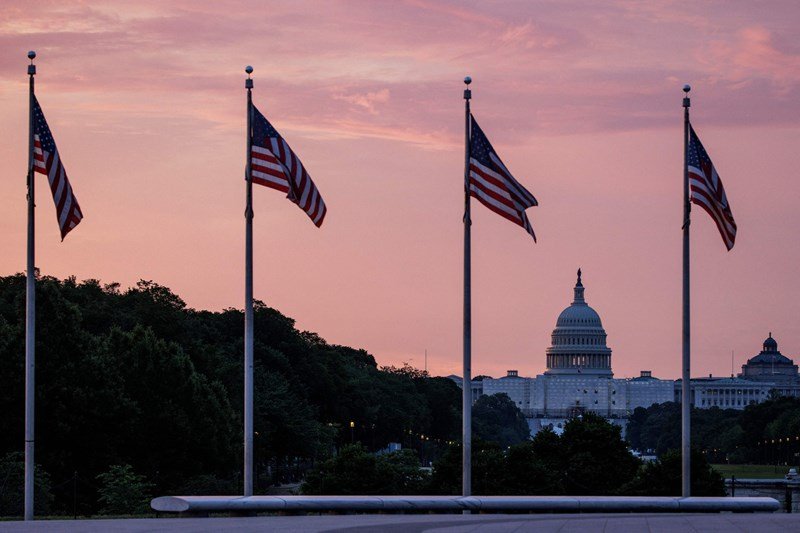The results from the poll underline widespread financial fragility and difference, with 21% of Black and Hispanic adults unable to pay the bill as opposed to 19% of White adults.
A poll conducted by decision intelligence company Morning Consult for Bloomberg News showed that fewer Americans can now afford to handle a surprise $400 bill in the third quarter without taking on debt or a loan – dropping two percentage points to 46% compared with last quarter.
About one-third of respondents said some debt, like credit cards, is needed to pay off the bill, and around one in five people said they would not be able to pay it off. The survey was held between July 10-15 with over 11,000 respondents.
The results from the poll also underline widespread financial fragility and difference, with 21% of Black and Hispanic adults unable to pay the bill as opposed to 19% of White adults. On the other hand, over one in five students stated they would not afford to pay it off – that’s 3 more percentage points from last quarter.
It’s noteworthy that US inflation surged to a new four-decade high in May of last year, defying hopes that price pressures had peaked and deepening President Joe Biden’s political troubles as Americans struggle to meet the cost of essentials like food and gas.
In an interview, Morning Consult Senior Economist Kayla Bruun argued: “We’ve had a lot of positive economic news lately, but there are a lot of consumers who aren’t really feeling this resilience,” adding that those earning less than $50,000 a year are still suffering from price increases.
Meanwhile, those who earn higher were shown to be more than twice as likely than their opposites to claim they would pay the $400 with cash or equivalents – an increase of 3 percentage points to 71%.
Middle- and low-income earners who claimed they could cover the expense each plunged two points to 57% and 33%, respectively.
The poll demonstrates that the categories of respondents said their real-life emergency expenses and bills went up, especially medical bills, which increased to a median of $380 – up $62 from last quarter.
This comes after a June survey from Bloomberg said that 42 economists predict that there is a 60% chance of a recession hitting the country within the next 12-month period, up from 50% in December 2022.
At the start of this year, a report titled: “New Reality Check: The Paycheck-To-Paycheck Report,” part of a PYMNTS and LendingClub collaboration, revealed that 9.3 million more consumers at the end of 2022 were living paycheck to paycheck, although, eight million of them earn more than $100,000 annually and still find it difficult to save money – becoming a mass ‘working poor’.
While the American people suffer, the National Defense Authorization Act (NDAA) approved an $886 billion last week that Biden requested for 2024 military programs, giving troops a 5.2% pay hike and providing $300 million for Ukraine’s security.
Source: Almayadeen



